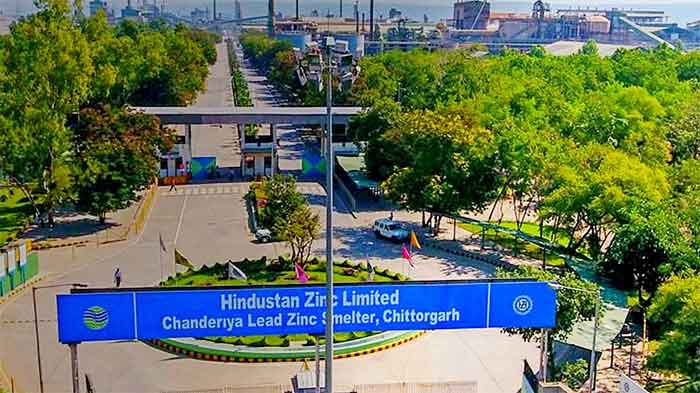
To
Smt Nirmala Sitharaman
Union Finance Minister
Dear Smt Sitharaman,
In your Budget speech last year, you had mentioned that the government would privatise a few PSU banks in due course. There are reports on statements originating from your Ministry that the government would introduce a Bill during the coming monsoon session for enabling it to privatise PSU banks in principle and relax the cap on foreign equity holdings in them.
In this connection, I wish to caution your government of the legal and the other far reaching implications of privatising any PSU bank.
When private banks were nationalised in 1969, the the then government had informed the Parliament that “the operations of the banking system should be informed by a larger social purpose, and should be subject to close public regulation”, it would serve the purpose of “severing the link between the major banks and the bigger industrial groups” which had so far controlled credit, “the interests of the depositors of the banks which have been nationalised, will not only continue to be fully safeguarded but will now have the backing of the State itself“.
Those considerations continue to exist even today and have since become far more relevant, in view of the large sections of the disadvantaged households not being able to access affordable credit facilities even today, and in view of the fact that income inequalities and concentration of wealth have since increased, not decreased. As expected at the time of nationalisation, the PSU banks continue to play a vital role in promoting the welfare function of the State, as visualised in the Constitution.
From the point of view of the legal implications, one should remember that the PSU banks are entities set up under Article 19(6)(ii). Coming within the ambit of Article 12, they are deemed to be an arm of the State. As such, they are an instrument of the State in promoting the welfare role spelt out in the Directive Principles, especially Article 38(1) [“promote the welfare of the people”], Article 38(2) [“minimise the inequalities in income”], Article 39(b) [“the ownership and control of the material resources of the community are so distributed as best to subserve the common good”], Article 39(c) [“that the operation of the economic system does not result in the concentration of wealth and means of production to the common detriment;”]. In addition, they are also subject to the provision relating to reservations for the SCs/STs/OBCs under Article 16.
Has the government applied its mind to the fact that privatising the PSU banks would run counter to this Constitutional obligation, amountiung even to reneging on it?
The PSU banks employ around 8 lakhs of personnel belonging to the SCs/STs/OBCs. A significant portion of them occupy managerial positions in those banks. Reservations in employment need to be viewed, not merely from the point of view of creation of employment opportunities alone but, more importantly, from the larger socio-economic benefit of empowering them. Privatisation of even a single PSU bank would not only create uncertainty regarding the conditions of service of the existing SC/ST/OBC employees (as also similar uncertainty in the future of all other employees) but also permanently close the Constitution-given opportunity for new recruitments to that extent. In my view, the government is under an obligation to explain these implications of this to the Parliament, as this will have long-term socio-economic implications.
Households, especially from the low and the middle income groups, deposit their savings in the PSU banks, on the assumption that those banks are a part of the State and, therefore, their deposits would enjoy sovereign backing. In fact, as already indicated, that was the solemn assurance given to the Parliament by the government in 1969 when it nationalised the private banks. A unilateral decision on the part of the government now to privatise a PSU bank, without the consent of the depositors, would therefore constitute a breach of the trust reposed by the depositors in the bank and in the sovereign government backing it. Such a step may not be legally sustainable.
I may remind your Ministry of the way the private promoters of the much touted Global Trust Bank had let down the bank’s unfortunate depositors and the RBI and your Ministry had to direct a PSU bank in 2004 to rescue whatever had been left of that errant private bank. Your Ministry seems to wink at the poor track record of the private sector banking!
When private banks were nationalised, the then government had consciously stated in the Parliament, as indicated above, that the purpose of bank nationalisation was to “sever the link” between the banks and the industrial groups to whom they give credit. Privatising a PSU bank would amount to restoring such an egregious link which involves a clear conflict of interest. The way the government has so far gone about privatising the CPSEs points to the absence of any due diligence in the matter of selection of the bidders.
Would the government assure the Parliament and the public at large that no private entity having either a direct or an indirect link with any potential client of the bank would be chosen to take over the management of the bank?
Several corporate business houses stand heavily indebted to the PSU banks. Many of them have been classified as NPAs, largely the outcome of outright fraud committed on the PSU banks, and the ongoing statutory resolution process has imposed heavy liabilities on them.
Would your Ministry filter out all such heavily indebted corporate groups from the bidding process?
While introducing any Bill to privatise the PSU banks, your Ministry should inform the Parliament of these legal, socio-economic and other implications, the implications of foreign equity holdings in the privatised banks, especially the adverse impact of privatisation on the spread of banking to the rural and the remote areas and to the disadvantaged sections.
Regards,
Yours sincerely,
E A S Sarma
Former Secretary to Govt of India
Visakhapatnam














































